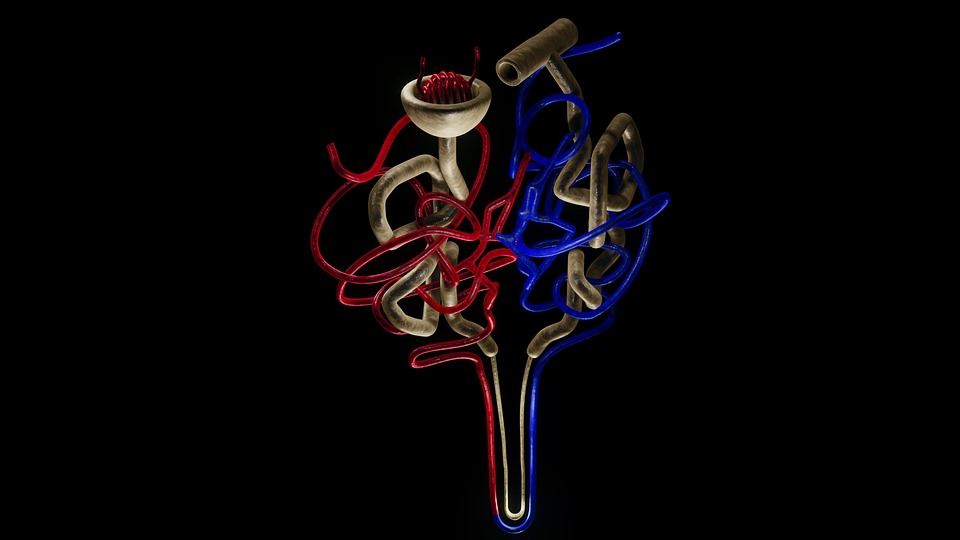The Surprising Role of Kidneys in Overall Well-Being
The kidneys, often overlooked in discussions about health, are vital organs that play a crucial role in maintaining overall well-being. Beyond their primary function of filtering waste products and excess substances from the blood, the kidneys influence numerous bodily functions, including blood pressure regulation, electrolyte balance, metabolism, and even bone health.
Anatomy and Function of the Kidneys
Before delving into their profound impact on health, let’s explore the anatomy and core functions of the kidneys. The human body possesses two kidneys, each about the size of a fist, located just below the rib cage, one on each side of the spine. Each kidney contains around a million functional units called nephrons, which filter blood to remove waste while retaining essential substances.
Filtration and Waste Removal
The kidneys filter approximately 50 gallons of blood daily, producing about 1-2 quarts of urine to expel waste. This waste primarily includes urea, a byproduct of protein metabolism, alongside other metabolic byproducts, excess vitamins, and toxins. This filtration process is vital; without proper kidney function, toxic substances can accumulate in the bloodstream, leading to serious health issues.
Regulation of Electrolytes and pH
The kidneys also maintain the body’s electrolyte balance. Electrolytes, such as sodium, potassium, and calcium, are essential for many bodily functions, including nerve impulses and muscle contractions. By adjusting their reabsorption of these substances, kidneys help keep electrolyte levels stable. Additionally, they regulate the body’s pH by excreting hydrogen ions and reabsorbing bicarbonate, which helps maintain acid-base balance.
Blood Pressure Regulation
The kidneys are integral to blood pressure regulation through the renin-angiotensin-aldosterone system (RAAS). When blood pressure drops, the kidneys release renin, an enzyme that initiates a cascade of reactions leading to the production of angiotensin II, a potent vasoconstrictor. This process, coupled with aldosterone’s effects on sodium reabsorption, helps increase blood volume and restore blood pressure to normal levels.
Influence on Metabolism
Interestingly, the kidneys also contribute to metabolism and hormonal balance. They produce erythropoietin, a hormone that stimulates red blood cell production in the bone marrow in response to low oxygen levels in the blood. This function is critical, as red blood cells are responsible for transporting oxygen throughout the body, affecting energy levels and overall vitality.
Bone Health
The kidneys play a significant role in regulating minerals that impact bone health, specifically calcium and phosphorus levels. They activate vitamin D, which is necessary for proper calcium absorption in the intestines, thus influencing bone density and strength. Impaired kidney function can lead to metabolic bone disease, characterized by weak bones, fractures, and other complications.
The Impact of Kidney Health on Well-Being
Given their multifaceted roles, kidney health directly influences overall well-being. Chronic kidney disease (CKD), a condition that affects millions globally, exemplifies how kidney dysfunction can disrupt various bodily functions and lead to widespread health issues.
Chronic Kidney Disease: An Overview
Chronic kidney disease is a progressive loss of kidney function over time. The disease is often asymptomatic in its early stages, making it crucial for individuals to be aware of risk factors such as hypertension, diabetes, obesity, and a family history of kidney problems. As CKD progresses, its symptoms can include fatigue, swelling, changes in urine output, and cognitive changes due to the accumulation of toxins in the body.
Cardiovascular Health
One of the most significant consequences of CKD is its impact on cardiovascular health. Individuals with CKD are at a higher risk for heart attack, stroke, and other cardiovascular diseases. This connection is bidirectional; cardiovascular disease can also lead to kidney damage, creating a harmful cycle of health complications. The kidneys’ inability to regulate fluids, electrolytes, and blood pressure exacerbates these risks, making kidney health critical for overall cardiovascular well-being.
Diabetes and Kidney Disease
Diabetes is a leading cause of CKD. High blood sugar levels can damage the blood vessels in the kidneys, impairing their ability to filter waste effectively. Conversely, kidney disease can make blood sugar control more challenging, leading to a vicious cycle that can worsen both conditions. Managing blood sugar levels through diet, exercise, and medication is vital for protecting kidney health in diabetic patients.
Immune System Function
Kidney health influences immune system functionality as well. The kidneys produce various substances that play a role in immune response, including cytokines. Impaired kidney function can lead to a weakened immune system, making individuals more susceptible to infections and other health problems.
Mental Health and Kidney Disease
The implications of kidney health extend into mental health as well. Studies show that individuals with CKD often experience higher rates of depression and anxiety. The physical limitations and lifestyle changes associated with kidney disease, along with the psychological burden of managing a chronic illness, can significantly impact mental well-being. Additionally, the accumulation of toxins due to reduced kidney function can influence cognitive function and emotional well-being.
Kidney Health and Lifestyle Factors
Understanding the pivotal role the kidneys play in overall health encourages individuals to prioritize kidney health through lifestyle choices. The following factors significantly influence kidney function and well-being.
Nutrition
A balanced diet is fundamental to maintaining kidney health. Proper nutrition includes managing sodium intake, ensuring adequate hydration, and consuming a variety of fruits, vegetables, whole grains, and lean proteins. For individuals with existing kidney issues, dietary modifications such as reducing phosphorus and potassium may be necessary to protect kidney function.
Hydration
Staying well-hydrated is crucial for kidney health. Proper hydration helps kidneys filter waste more effectively and can prevent the formation of kidney stones. However, individuals with advanced kidney disease may need to monitor fluid intake closely to avoid fluid overload.
Exercise
Regular physical activity is essential for overall health and plays a key role in maintaining kidney function. Exercise helps control weight, manage blood pressure, and improve cardiovascular health, all of which are important for kidney health.
Avoiding Tobacco and Excess Alcohol
Smoking and excessive alcohol consumption can harm kidney function. Quitting smoking and moderating alcohol intake can significantly reduce the risk of developing kidney disease and support overall well-being.
Regular Health Check-ups
Routine health check-ups, including monitoring blood pressure, blood sugar, and kidney function (via blood and urine tests), can help detect kidney issues early on. Early intervention is crucial for preventing further damage and maintaining kidney health.
Stress Management
Chronic stress contributes to various health problems, including hypertension and changes in eating habits that can affect kidney health. Practicing stress-reduction techniques such as mindfulness, meditation, and regular physical activity can help support kidney function and overall well-being.
The Future of Kidney Health
As research continues to uncover the intricate connections between kidney function and overall health, advancements in medical treatments and preventative strategies are likely to emerge. The following areas hold promise for improving kidney health and, consequently, overall well-being.
Innovations in Kidney Disease Management
Recent advancements in medical technology have made significant strides in the management of kidney disease. Artificial intelligence and predictive analytics are being utilized to identify individuals at risk for kidney disease early, allowing for timely interventions and better management of existing conditions.
The Role of Personalized Medicine
The future of healthcare is leaning toward personalized medicine, where treatments are tailored to an individual’s genetic makeup and lifestyle factors. Such personalized approaches hold promise for optimizing kidney disease management and improving outcomes for patients.
Public Awareness and Education
Increasing awareness about kidney health is essential to prevent kidney disease. Educational campaigns highlighting the importance of kidney function, the impact of lifestyle choices, and the risk factors associated with kidney disease can empower individuals to take proactive measures to protect their kidneys.
Research and Funding
Ongoing research is crucial for understanding the complex roles of kidneys in overall health. Increased funding for kidney-related research can lead to better treatment options, innovative technologies, and improved patient care strategies.
Conclusion
The kidneys are remarkable organs that do far more than filter waste from the blood. Their influence extends into nearly every aspect of bodily function, greatly affecting overall well-being. Prioritizing kidney health through lifestyle choices, regular monitoring, and early intervention can significantly improve quality of life and reduce the risk of developing chronic kidney disease and its associated complications.
As we strive for better overall health, recognizing the surprising role of the kidneys is essential. By caring for these vital organs, we pave the way for a healthier, more vibrant life.
References
- National Kidney Foundation.
- Centers for Disease Control and Prevention (CDC) – Chronic Kidney Disease.
- American Kidney Fund.
- Kidney Disease: Improving Global Outcomes (KDIGO).
By understanding and supporting kidney health, we take an integrated approach towards achieving optimal health and well-being. The kidneys might be small organs, but their impact on health is profound, and it’s time to give them the attention they deserve.
























Add Comment